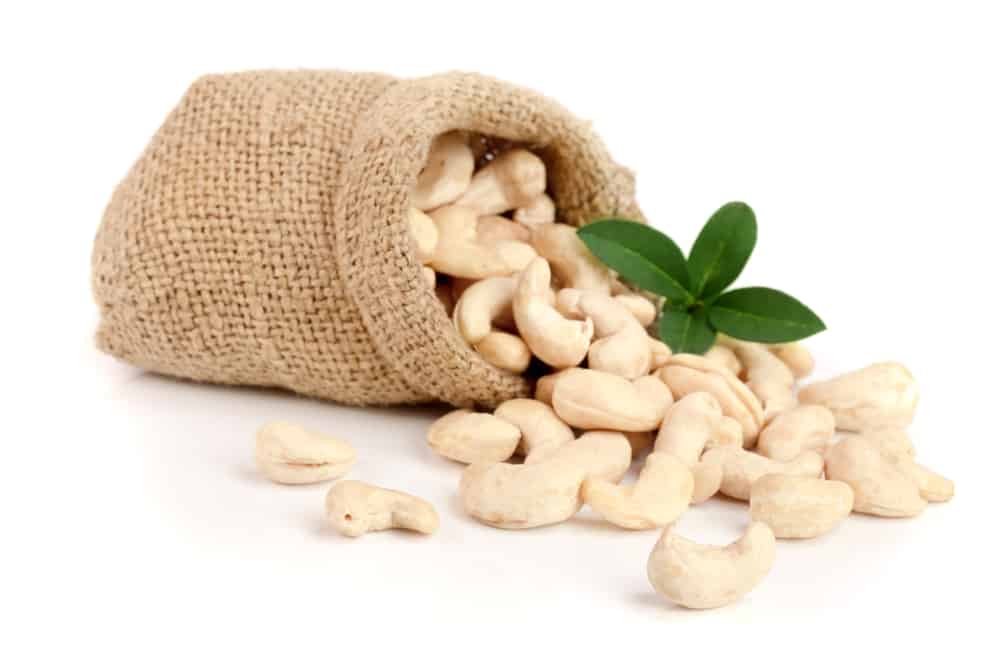ENJOY Free U.S. Shipping on Orders $59+. Shipping not available to Canada, Mexico & non-contiguous U.S. Dismiss

When you browse the health food aisles of a local grocery store, you’ll likely see a variety of cashews available. This is because cashews contain a wide range of nutritional benefits that make them a top choice for healthy snacks for many people. While all cashews are a good source of protein and healthy fats, the cashews you can buy at the store have some significant differences from the raw cashews sold at Beyond the Nut. From the ethics of the supply chain to the methods of preparation, Beyond the Nut cashews offer a range of advantages over their store-bought counterparts.
Any cashews that you can buy, even those listed as raw cashews, are cooked in some way prior to packaging. This is because cashews grow in such a way that they are encased in a toxic shell, and after being removed from this shell, the heating and cooking process removes all traces of these toxins. Raw cashews have undergone this process, but you will also see a lot of cashews marketed as roasted, either plain or flavored cashews. However, when you look closely at the ingredients list of store-bought roasted cashews, you might notice vegetable oil high up on the list. Cashews are known for containing high amounts of healthy fat, so they do not need oil to be added. But many large nut companies find It easier to fry the cashews in oil as they don’t need to be fresh to be fried. So what you see marked as “roasted” cashews may actually be fried, older cashews, making them more salty and fatty than you expect.
Beyond’s cashews are never fried in oil and have transparent ingredient lists so you can be sure you are getting all the goodness of cashews with no extra ingredients.
One sign that your store-bought cashews may not have oil added is that they are marked as “dry-roasted.” This means no oil was used and saves you from the addition of unhealthy fats. However, it’s still very likely that the cashews were not fresh when they were prepared. In order to maintain the flavor of these older nuts, there may be preservatives added before packaging.
Beyond the Nut cashews are always prepared fresh and when roasted, use healthy oils like sunflower oil.
Like much of the food you buy in the store, you may not know where your cashews come from. Before cashews reach the shelves of a store, they have been through harvesting, processing, and packaging to be ready for you to eat. Part of this process involves removing the shell and its toxins before cooking. At many large companies, this step often involves a number of unsafe and unethical labor practices. Farmers are typically compensated very little and cheap labor is used for processing, with poor working conditions. Many people working on cashew processing suffer burns and other injuries in the process while being paid next to nothing. When the cashews are sold at a high profit, none of that benefits these workers. These are some of the secrets the big nut companies are not telling you.
Beyond the Nut is working to end these horrible working conditions, unsustainable pay, and exposure to toxic chemicals in the cashew processing industry. We know that as cashews become more popular, so do the injustices used by many large companies use to gain profit. In 2010, Benin, West Africa had 98% of their cashews exported for processing, meaning that the local farmers in the area lost the jobs, wealth, and opportunity of being a part of the cashew industry.
The model at Beyond the Nut has revolutionized the process of getting cashews to consumers. By working with farmers, entrepreneurs, and engineers located in Benin and other regions, our cashew operation is thriving and sustainable, all while treating workers as an important part of the process. As a part of our fair trade philosophy, we take a holistic approach to cashew production, blending community and business development throughout the communities we work in.
The people involved in all stages of our processing are paid fairly, treated well, and are a part of our operation. Our goal is nothing more than producing the world’s best cashews with fair trade, thriving, and sustainable local farming community- and you won’t find that in the store.
Fuel Your Beyond with the Latest Discounts, Promotions, and Product Announcements